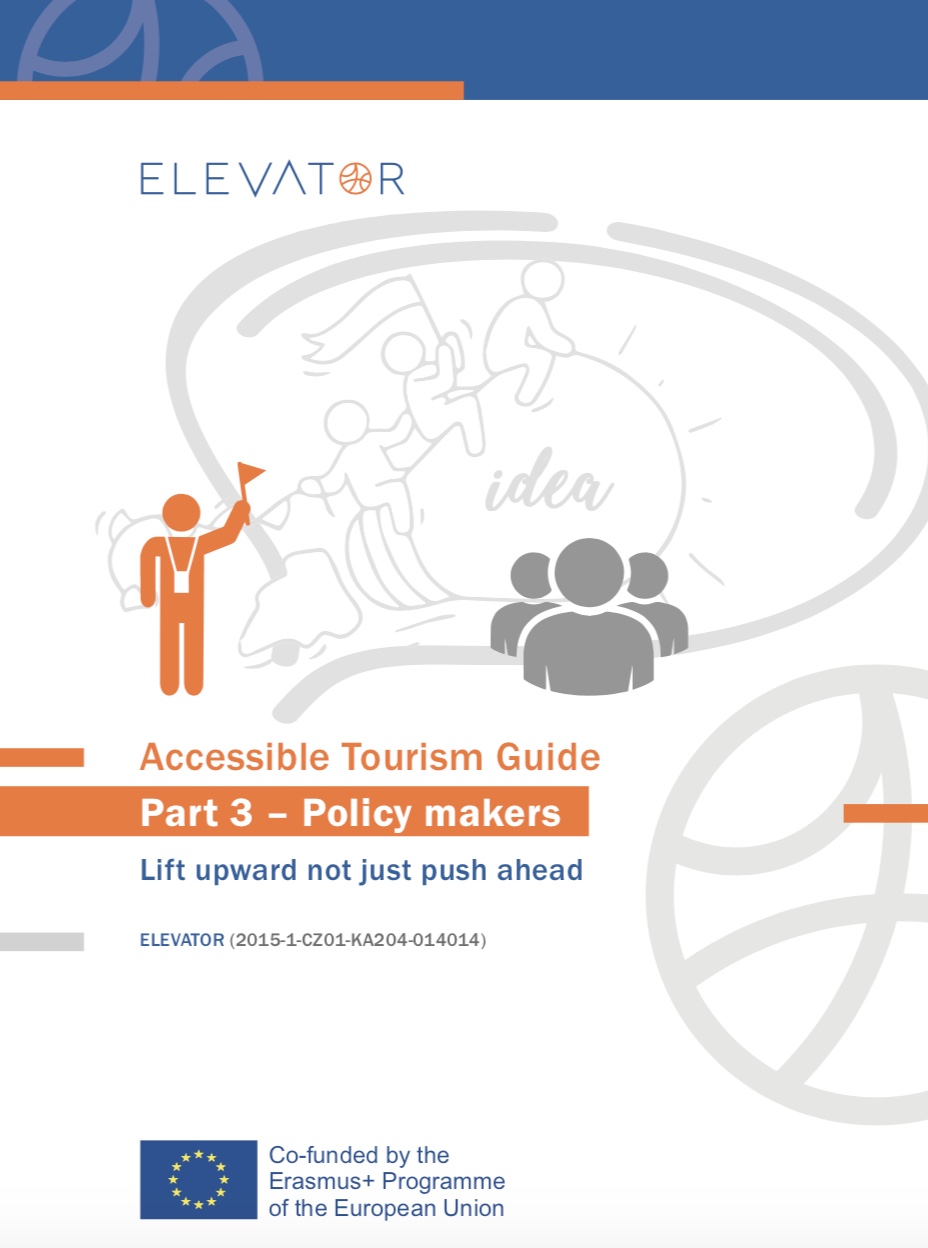ELEVATOR Report 3.3 Accessible Tourism Guide | Policy Makers
Share on social media
Accessibility is an important topic in tourism, yet often overlooked. It seems that the main reason for that is lack of knowledge and cooperation between key stakeholders. This Report is created as a brief guideline introducing this topic with particular attention being paid to the role of Policy Makers in fostering a suitable environment for cooperation and motivation of all stakeholders in order to lift up the tourism offer and environment for living.
 Accessibility is an important topic in tourism, yet often overlooked. It seems that the main reason for that is lack of knowledge and cooperation between key stakeholders
Accessibility is an important topic in tourism, yet often overlooked. It seems that the main reason for that is lack of knowledge and cooperation between key stakeholders
This Report is therefore created as a brief guideline introducing this topic and giving answers to 3 main questions:
- What is accessible tourism?
- How can accessibility in tourism be improved?
- What are the benefits of accessible tourism?
It has 3 parts where each part is dedicated to one VIP group, that each play an important role in the development of accessible tourism: Visitors, Tourism Industry, and Policy Makers.
Policy Makers' Guide
This chapter (Part 3.3): “Lift upward not only push ahead“ is aimed at Policy Makers, i.e. politicians, public authorities, tourism boards and other decision makers in tourism and access policies on national, regional or local level, who are expected to take into account citizens' needs and create a suitable environment for cooperation and motivation of all stakeholders in order to lift up the tourism offer and environment for living.
End-users: Destination managers, tourism providers, visitors and local citizens with specific access requirements, teachers and students of tourism and hospitality.
Form: Electronic document
Participants: KAZUIST, ENAT, PREMIKI, TANDEM
Download the report in PDF format from the right-hand panel in Czech, English, Greek, Italian and Slovenian.

Co-funded by the Erasmus+ Programme of the European Union.
Disclaimer: The European Commission support for the production of this publication does not constitute an endorsement of the contents which reflects the views only of its authors, and the Commission cannot be held responsible for any use which may be made of the information contained therein.
